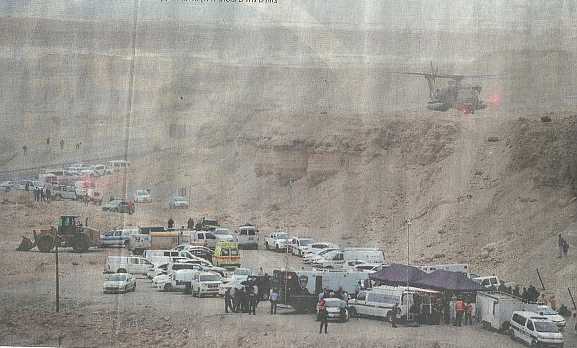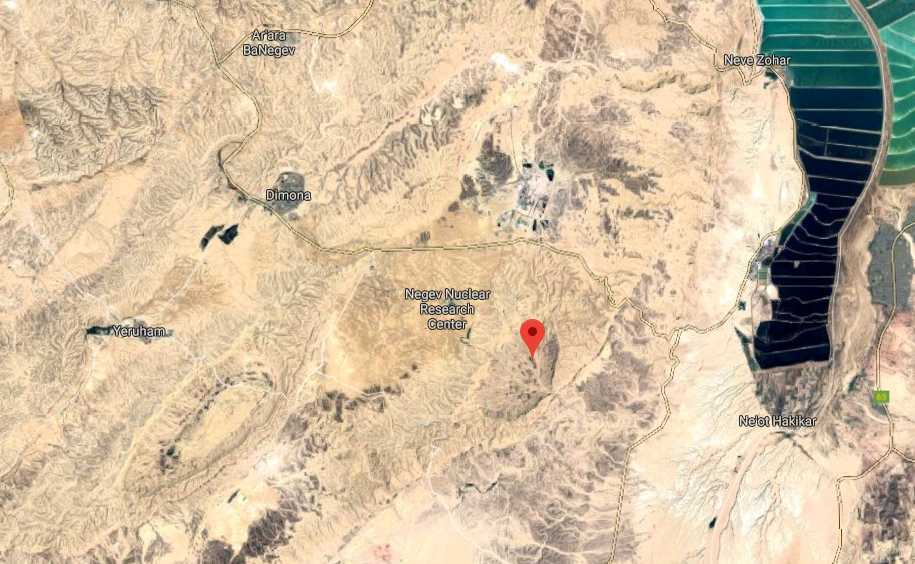The tragic deaths of ten young people in the flash flood of Nachal Tzafit shook the hearts of the entire nation, and plummeted the whole country into shock.
Rescue forces at Nachal Zafit

However, incidents such as these where travelers forfeit their lives in accidents are a daily occurrence. What, then, is different about this particular tragedy to make so many hearts shudder in shock? Perhaps, aside from the fact of the fatalities to the bereaving parents, there is the element of the helplessness of humanity against the powers of nature which vibrates thin threads of self-security which are all too prevalent in people's hearts.
Suddenly they are faced with the reality that despite progress and technology, they are still insecure. They immediately descend like a pack of wolves in searching for a scapegoat, someone/thing to lay the blame upon. As if one can explain how the eyes of an entire group were blinded and their ears made deaf against clear-cut warnings that led an entire group of young people to the deathtrap of treacherous waters. While such a tragedy can possibly be avoided in the future through its lesson, nevertheless, the Jewish people must make a reckoning.
Approximate location of recent tragedy

In Sivan, 5723, nine Bais Yaakov students drowned in a tragic manner. The pain was too harsh to bear. HaRav Yaakov Neiman, Rosh Yeshivas Ohr Yisrael, delivered an address to yeshiva students in Petach Tikva, quoting a posuk from the parsha, "And all of Israel shall bemoan the burning which Hashem wrought."
Weeping is, after all, a very natural phenomenon, especially when relates to young people dying in their prime. Why then, asked HaRav Neiman, did Moshe Rabbenu have to command the weeping?
He explained that the command was not particularly over the actual act of crying; this is not something which needs a command. Moshe's exhortation was that the weeping be directed to the fact that "Hashem wrought" the circumstances for it. It was necessary to dwell upon the lessons of the tragedy and internalize them. The tragedy occurred specifically as a message to arouse hearts to teshuva. "For over the youths, Hashem did not rejoice."
HaRav Neiman continued, "Chazal say that thunder was created specifically to straighten the crookedness of the heart. Thunder is a natural occurrence in the clouds during rainfall. But natural events also have a purpose and mission - to put fear into errant hearts. And if thunder which is a natural phenomenon has its purpose, then the thunder and shock of the death of young people surely has its function - to straighten the aberrations of hearts!
He quoted the words of the Alter of Kelm, "`I have heard Efraim wavering." Even if he is deliberating but vacillating in his self-examination, even then he is still `My dear son, Efraim, the son of My pastime.' But if one stops his ears from letting himself be aroused, then he must suffer from "In vain have I smitten your sons; they did not derive the lesson of the rebuke."




